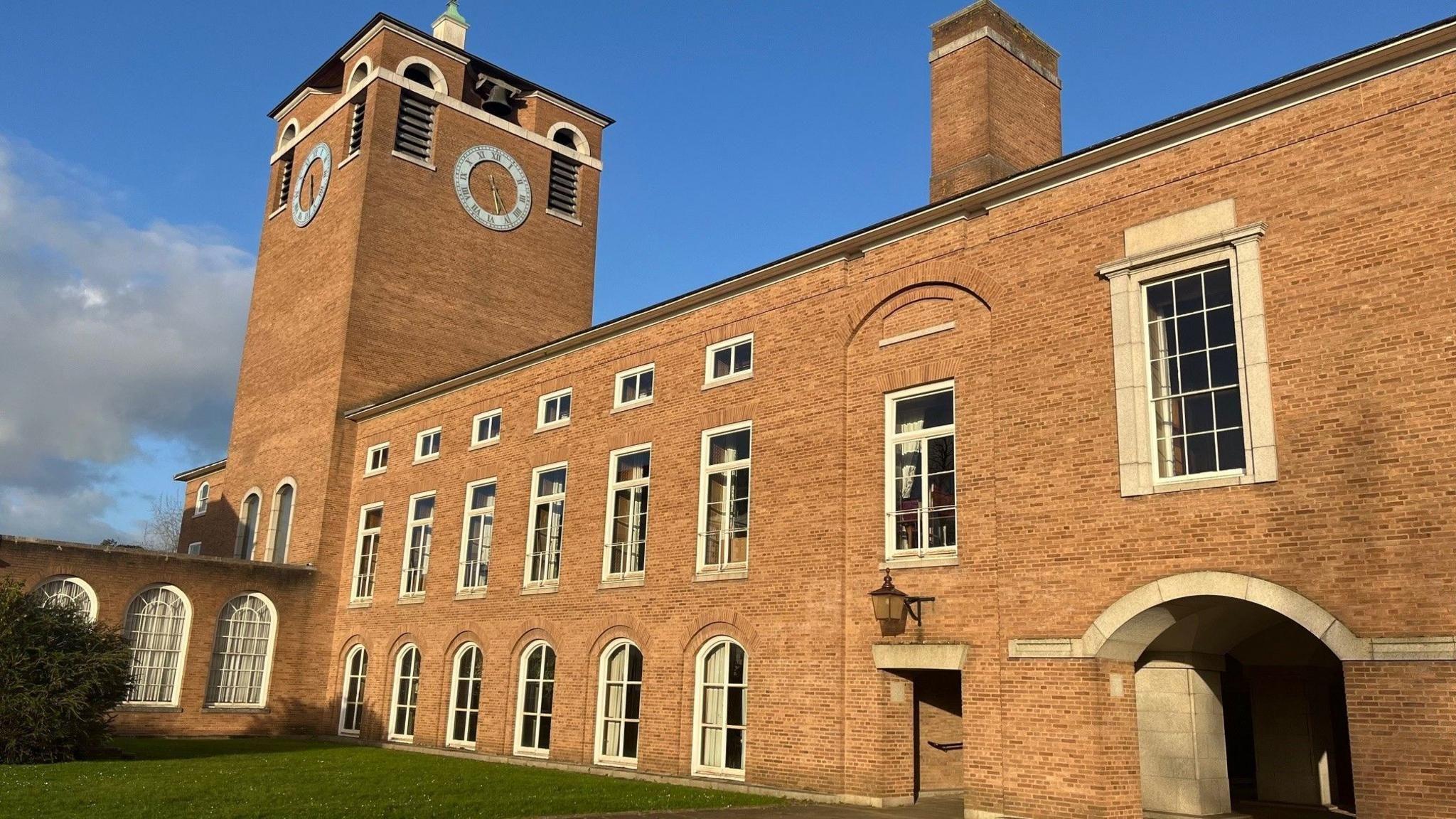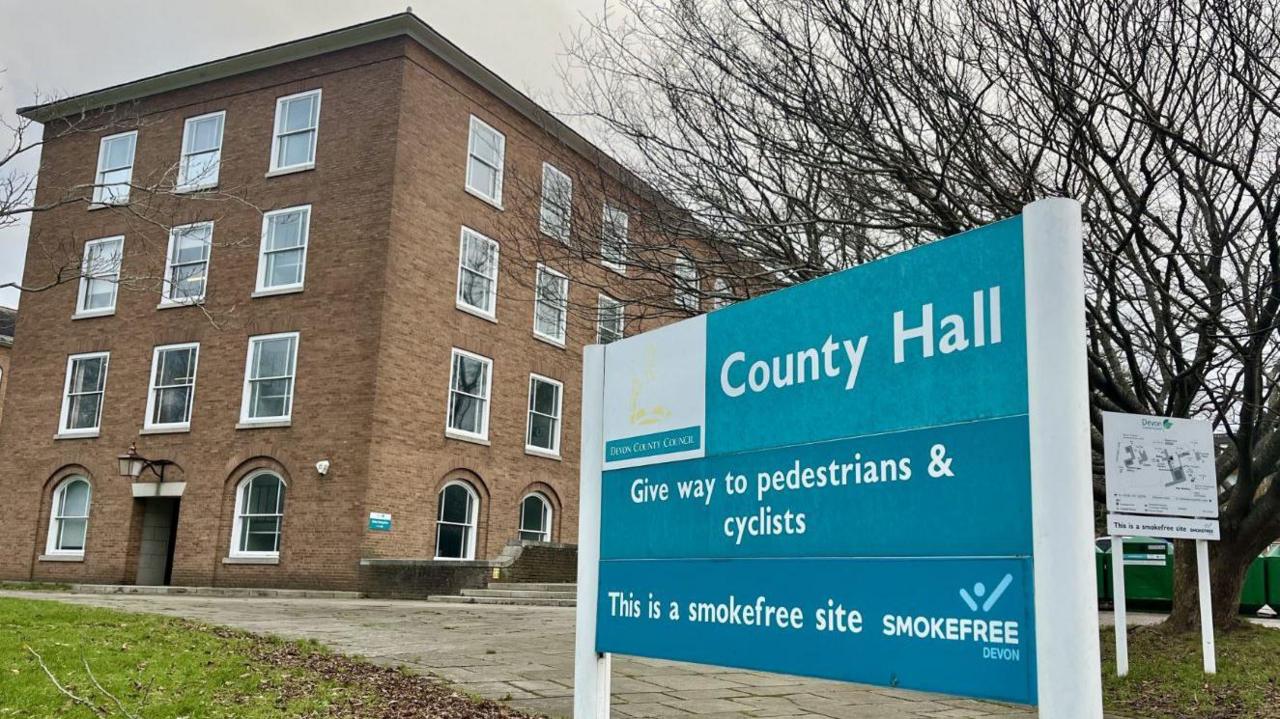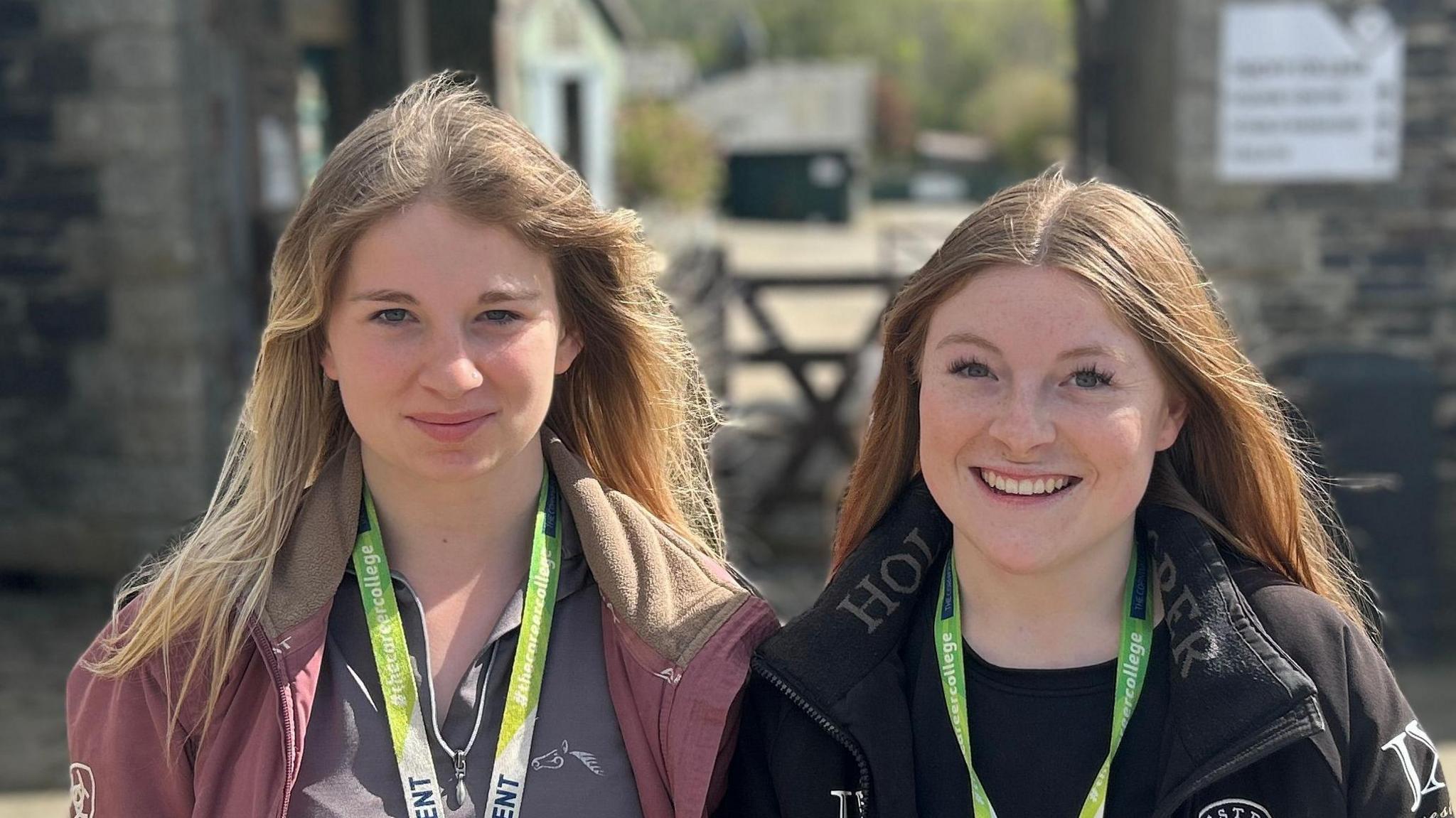Beginning of the end for council created in 1888

Devon County Council can trace its roots back to 1888
- Published
Elections usually mean new beginnings – but for Devon County Council this week's poll is the beginning of the end.
Like all local authority councils in the remaining "two-tier" areas – governed by a combination of county and district councils – it will soon be abolished.
The government announced in the autumn that it wanted unitary authorities – single councils which provide all local government services – everywhere.
To say it is the end of an era in Devon is perhaps an understatement: Devon County Council has been governing most of the county for a very long time.
Councillors in the dock
It was created by the Local Government Act of 1888 - a milestone in local democracy.
Before then, Devon's smaller towns and rural areas were governed by unelected magistrates through the Court of Quarter Sessions, which sat in the old law courts at Exeter Castle.
The castle courtrooms subsequently became the first home of the new county council – although the accommodation was apparently so cramped to begin with that some members had to sit in what had been the dock for the previous courts' accused.
Indeed it was only in 1964 that the council moved to its current purpose-built home outside Exeter city centre.

Devon County Council only moved to County Hall in 1964
The main urban centres of Plymouth, Torbay and Exeter have at different times moved in or out of the county council's jurisdiction.
At the moment Exeter's in, while Plymouth and Torbay are out, both having been made unitary authorities nearly 30 years ago.
Now, though, everything and everywhere in Devon is up for grabs; all 2,590 square miles (6,710 square km), 1.2 million people, the county council, the eight district councils and Plymouth and Torbay will be remoulded into a much smaller number of unitary authorities.
Exactly how is a work in progress, but ministers expect the new local government map of Devon to be in place by 2028 at the latest.
And that is not all.
Across the country, the government also wants to see unitary authorities coming together under elected mayors.
The existing councils in Devon wanted that to extend across the River Tamar in the form of a joint mayor for Devon and Cornwall.
Cornwall Council, already a unitary authority, has emphatically rejected that, saying Cornwall should not have to combine with anybody and it does not want a mayor.
Driving local solutions
Devon's local government leaders are now asking Whitehall for a mayor to oversee the new group of councils in Devon alone – with an open invitation for Cornwall to join. How this pans out remains to be seen.
But some things we do know.
Ministers have been clear they are prepared to intervene as a last resort if acceptable solutions cannot be agreed locally.
It is equally clear they see mayors as key players driving local government solutions.
Expect to see more powers handed down from Westminster and Whitehall to those areas which accept an elected mayor.
Take the pub trade, for instance. The Mayor of London has just been given new powers to grant pubs and clubs later opening hours.
The government said this could be extended - you've guessed it - "to other mayors".
Perish the thought that local government could ever be dull.
And the outcome of this week's elections is just the start.

Follow BBC Devon on X, external, Facebook, external and Instagram, external. Send your story ideas to spotlight@bbc.co.uk, external.
- Published7 April

- Published25 April
